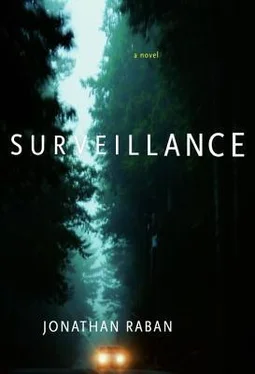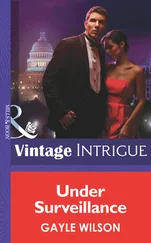Lucy headed for the interstate. Not long ago they’d sat down together in the living room and listened to the Green Day album on the sumptuous stereo system she’d bought after the Kurt Cobain piece, when Tina Brown had put her on a monthly retainer. She was surprised by how much she liked them, their unexpectedly complex melodies reminding her sharply of the Beatles. But the words! She had to work hard to figure out the lyrics and was shocked by their bleakness once she decoded them.
“What’s your favorite track?” she’d asked.
“‘Give Me Novocaine,’” Alida said, as Lucy herself at the same age might’ve voted for “All You Need Is Love.”
Give me novocaine —at eleven? Green Day had about as much optimism as Noam Chomsky, and about as much humor, in Lucy’s view. But they were the band for Alida and her friends, for whom tuneful despair was apparently the going thing. At least Alida liked — or pretended to like — the Beatles, too.
There were long lines at the I-5 checkpoint, where Lucy was again lectured about not having a National ID card, and a two-ferry wait at Mukilteo. Shortly after six, she drove onto Whidbey Island.
In the buttery evening light, the rinsed green of pasture and woodland looked like another, blessedly peaceful world. Not wanting to pass the scene of Monday’s accident, Lucy took a maze of little back roads, with Alida map-reading.
“In about half a mile, the road will turn to the left. You want to take a right immediately after the bend….” Her map skills were of motor-rally standard now. Last summer, she’d navigated them down to LA on the coastal roads and back to Seattle via the Mojave Desert and the Sierras without a single wrong direction. Along the route they’d talked and talked, about everything. But that was before the fucking iPod, which she continued to wear as she read aloud from the map, nodding away to some suicidal song that Lucy couldn’t hear.
“Look at how green it all is after the rain,” Lucy called out, as if to someone far off in the fields.
After a long pause, Alida said, “Cool.”
“Oh, Rabbit.”
Nod. Nod. Nod. Who gives a rat’s ass about greenery when history’s coming to an end and all you want is to be numbed with novocaine?
“Sunlight Beach Road is the next left, coming up in a bit less than a mile. You said they had kayaks, right?”
“Yes, Augie said he’d teach you if you wanted.”
“That’d be cool.”
“Like cool -cool, not like okay-and-what-else-cool?”
“Yeah, cool.”
As she swung the car onto the raked and virgin gravel of 2041, Augie Vanags came out the door to greet them.
He bowed to Alida and held out his hand. “Alida, hi! I’ve been so much looking forward to meeting you.”
“Me too.” Alida was reliably polite with strangers.
“Lot of questions I want to ask you.”
They were exactly the same height — Augie nattily tricked out in black turtleneck, white duck pants, and blue suede loafers, Alida in her weird skirt-over-jeans outfit. To Lucy they looked alarmingly like some May-November couple. God, those sunglasses: they turned her into a nymphet. Still, the just-visible sprays of zits on her forehead and around her chin helped to detract from the effect, which was something.
“Lucy.”
So she was Lucille no more: he must have looked her up on the Internet.
Squiring Alida by the elbow, Augie led them into the house, and Lucy remembered Tad saying that he used to hit on his students.
TAD, shopping at Trader Joe’s, mostly for wine, was waiting in the checkout line. The guy ahead of him, fortyish, with specs and an Abe Lincoln beard, looked familiar, though Tad couldn’t place him. The guy’s basket was bare: ground beef under cellophane wrap, a single can of tomatoes, three netted onions, a small box of mushrooms, a pack of cheap American-made spaghetti. Tad watched him pay with a mixture of food stamps and ones and quarters. Then he remembered.
“Mr. Quigley!”
The guy turned, blinked for a moment, and said, “Mr. Autoglass?”
“Alida — Alida Bengstrom — was in your class last year.”
“Yes, Alida. Smart kid, and kind, too, which counts for a straight A in my book. It was fun teaching her.” He looked forlorn at the memory.
“I’m sort of like her godfather.”
“Cash back?” the clerk said.
“No thanks.” Tad clicked Enter on the $143.04 he was charging to his debit card.
“How’s she liking sixth grade?”
“She’s doing great, but she still misses your class. You were the best teacher she’s ever had, you know that? You turned her on to so many things. Like that world population and income distribution project — with the kids on the desks and the M & M’s? She’s never going to forget that. I was pretty turned on by it, too.”
“Not too many M & M’s for Africa,” Mr. Quigley said. Not too many M & M’s for Mr. Quigley, either, by the looks of it. He appeared wrung out of everything except for that stubborn trace of schoolteacherly wryness, the ingrained habit of his trade.
“How’ve you been holding up?” Tad asked.
“Well, I’ve learned a lot about the bus routes, going to interviews. And biking.” Tad had noticed that the cuffs of his pants were tucked into his socks.
Tad was involved in a complicated bit of stage business: trying to scratch off the $18 price tag from the most expensive bottle he’d bought, shielding this from Mr. Quigley while keeping him engaged in conversation. The wine — a 2001 Château Gigault — wasn’t anything to write home about, but it would have to do.
“Nice meeting you,” Mr. Quigley said wanly, turning to head out into the street and get on his bike.
“No, wait — Mr. Quigley? Alida wants to be remembered to you. It’s a thank-you note from her. It ought to go okay with spaghetti Bolognese.”
“Thanks — thank Alida for me.” He took the bottle, but looked utterly humiliated by the transaction, and clearly couldn’t wait to escape Tad’s de haut en bas solicitude.
As he scuttled from the store with his string bag, pant-legs flapping free of his socks, Tad thought, Fuck! How the fuck could I have been so stupid?
It was just the sort of actorish gesture he despised, landing poor Quigley on the receiving end of such paltry, self-aggrandizing largesse. He should have found out his address and sent him a crate of the stuff with a covering note from Alida, who would have instinctively known how to handle it gracefully. Tad carried his two paper sacks, bottles clanking, out to the VW, cursing himself under his breath.
Hating himself, he felt a resurgence of hatred for the conniving band of mothers who’d brought Quigley down, and for the supine weakness of the school’s principal, who’d let him go. It had been politics, of course. Quigley had polluted his fifth-grade classroom with “left-wing opinions.” That was the festering complaint of the suburban moms, especially those from the East Side. But when Quigley made fun of “intelligent design,” the mothers saw their chance and sprang. They were technically outnumbered by the secular, liberal group of parents from the city, led by Lucy, but they had the big guns, including control of the PTA and a vociferous moral indignation that the liberals couldn’t match. Their precious beliefs were being contemptuously mocked by a dangerous atheist, a man grossly unfit to take charge of their too-easily-impressionable darlings, and when they confronted the principal, she put up about as much resistance as a sponge. When Lucy’s army tried to counterattack, the principal went into tearful meltdown: oh, of course she was on their side, really, but what could one do when the Jesus freaks were on the warpath? So she sacked him.
Читать дальше












